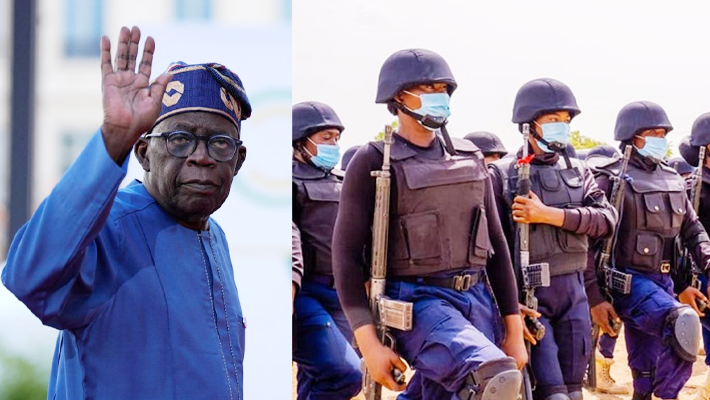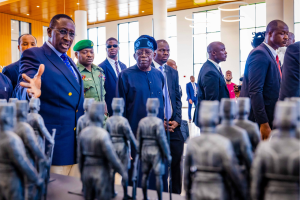Tinubu’s Push for Local Arms Production, Reinforcing Security Architecture, Institutions and Reverbing Hope

Every headline about terrorism, banditry and communal violence is also a story of disrupted families, displaced communities and fragile dreams in the Nigeria’s long battle with insecurity. Against this backdrop, President Bola Tinubu has unveiled a strategy that seeks to go beyond short-term fixes, building Nigeria’s defence strength from within.
At the graduation ceremony of Course 33 of the National Defence College (NDC) in Abuja, President Tinubu, who was ably represented by Vice President Kashim Shettima, announced the president’s plans to scale up indigenous production of arms and ammunition. The pledge is not merely about military pride, it is a vision for self-reliance, economic renewal and national survival. The President declared that strengthening indigenous manufacturing of military hardware is indispensable to our nation’s security and development.
![]()
For decades, Nigeria has depended heavily on foreign arms suppliers, a dependence that often left its soldiers vulnerable in moments of crisis. Tinubu’s emphasis on local capacity speaks to a broader political message that Nigeria must own the tools of its defence if it is to safeguard its sovereignty. It is also a humanitarian promise, to protect villages from marauding bandits, to give displaced children a chance to return to school and to ensure that families can farm, trade, and worship without fear.
The NDC ceremony became a symbolic platform where security met research and policy. Tinubu praised the College’s tradition of intellectual rigor, referencing the Presidential Treaties on Harnessing Indigenous Manufacturing for Enhanced National Security and Development and Strategic Options for Nigeria by 2040. He said, such research provides blueprints for the future of Nigeria’s defence and development.
Beyond weapons, Tinubu tied national security to the strength of democratic institutions. The theme of the graduating course, which was – Strengthening Institutions for National Security and Development in Nigeria, echoed his administration’s broader agenda. Tinubu believes without strong institutions, there can be no lasting democracy. Noting that institutions uphold the rights to ensure accountability and serve as frameworks for both conflict management and governance.

For citizens, these words connect directly to live reality. Strong defence institutions mean quicker responses to kidnappings, more resilient borders against smuggling, more secure highways for travelers, etc. Strong civic institutions mean fairer governance, a functioning justice system and policies that turn economic growth into real prosperity.
The President also pledged to complete the permanent site of the NDC at Piwoyi, with a vision of upgrading it into a Defence Postgraduate University that would train not only Nigerians but also allied nations. The promise underscores a broader ambition to position Nigeria as both a secure state at home and a strategic power in Africa.
The ceremony was also about the graduates themselves—drawn from the Army, Navy, Police, civil institutions, and even foreign partners, who will soon carry the weight of Nigeria’s security challenges. President Tinubu urged them to apply their training to a world that is increasingly shaped by cyber threats, global economic shocks and regional instability.
With regards to communities across Nigeria, the true test of Tinubu’s vision will be measured not in speeches but in experiential evidences that beckons these questions: Can displaced families return to their homes? Can farmers in Zamfara, Katsina, or Plateau harvest their crops in peace? Can children in the Northeast dream beyond survival? These are the human metrics of success.
President Tinubu’s vow to boost local arms production and strengthen institutions is, at its core, an attempt to fuse politics with humanity, defence with development and strategy with survival, to bring trust for security-governance back to millions of Nigerians.






